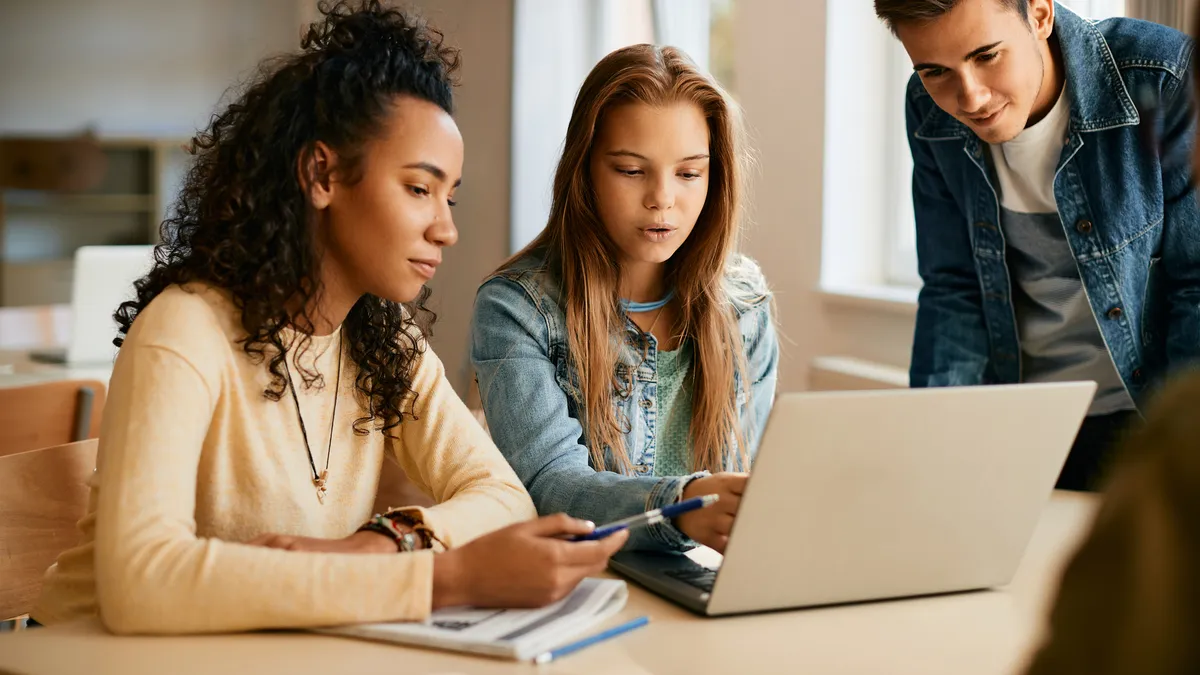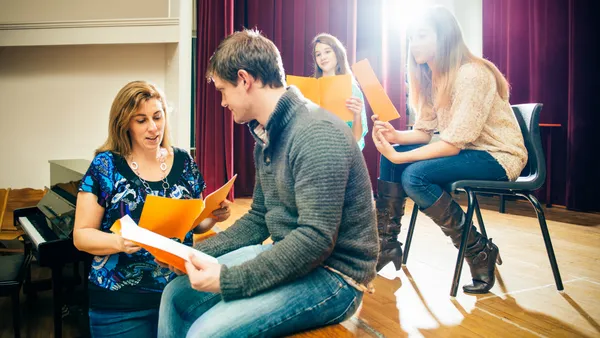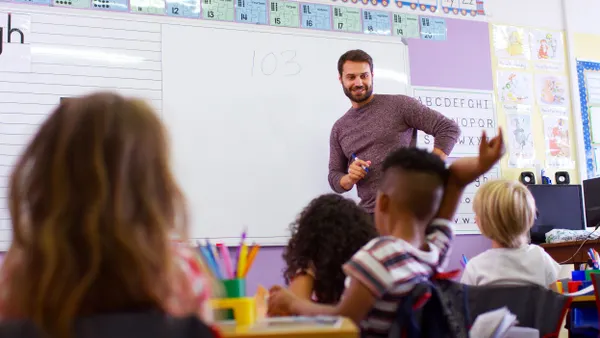Dive Brief:
-
Personalized learning can help students connect to what they’re studying by bridging curriculum to something students care about, such as their values.
-
To build that link, teachers need to do some work beyond tracking students' classwork and find out what helps to spark excitement and engagement in learning, said Carole Basile, dean of Arizona State University’s Mary Lou Fulton Teachers College.
-
“In order to connect learning to students, educators need to really understand who their students are — not just academically, but at a deeper level including interests, ideas, passions and experiences,” Basile said.
Dive Insight:
According to Basile, personalized learning can make lessons more interesting by helping students uncover how the material resonates with elements of their own lives. That may include personal experiences, such as their family lives, or perhaps details that tie into their community.
But she also notes that this style of learning is more than just about linking the material to interests. It’s also about helping students have some ownership and direction in the way they want to learn.
“Personalized learning is also about voice and choice and allowing students to guide their own experience in terms of what they want to learn, not only what they need to learn,” Basile said. “It’s a balance.”
When applied well, personalized learning can help students reveal more than just a mastery of the material through an assessment or exam. Instead, this approach may also help seed a passion — not just for the specific lesson or topic, but one that builds excitement among students to make learning a natural and ongoing part of their lives.
“Personalized learning and deeper learning go hand-in-hand,” said Basile.
“Personalized is not just practicing of rote knowledge, it also needs to add to deeper understanding of areas of interest, needs to build new areas of interest and foster a love of learning," she added. "This then allows learners to reach their human potential."











